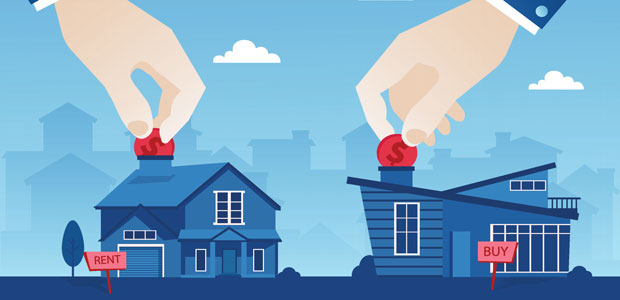
Should You Rent Or Buy Your Business Premises?
There are a lot of factors to consider when deciding whether to rent or buy your business premises. Both options have their pros and cons, and it can be difficult to decide which is the best option for you. In this article, we will discuss the pros and cons of renting vs buying business premises so that you can make an informed decision about what is best for your business.
Renting Business Premises
First, let's start with renting a property. There are some obvious benefits to taking this route. Most obviously, renting business premises is a more affordable option than buying. This is especially true if you are starting a new business and don't have a lot of capital to invest, but you still need somewhere to get started.
When taking on a rented property, you’re only bound by the lease. Once the lease expires, you’re free to move on with no further ties to the property. This is ideal for small, growing businesses as it allows you to move on to larger premises as your business grows.
However, it's not all advantages.
When renting, you are limited in terms of how long you can stay in the rented premises, and you may have to move if the landlord decides to sell the property at the end of the lease. You’re also at risk of rent rises should the market improve by the end of your lease.
What's more, you will also have to pay rent every month, and this can add up over time. If your business is doing really well, you may find that you are paying more in rent than you would pay in mortgage costs had you bought the property.
Finally, it's worth mentioning that when renting a property, you will need to get permission from your landlord before making any significant changes to the property, such as installing new signage or making internal alterations to the property.
This is worth remembering. At the end of the day, your landlord is always in control of your property. They may choose to put the rent up at any time (subject to terms in your contract), or they may even decide to sell, meaning you'll have to find somewhere else. Sure, most leases will ensure you get some kind of warning, but ensuring that the lease terms don’t cause issues further down the line requires specialist knowledge, or help from a legal expert, which costs money.
Buying Business Premises
Now let's take a look at buying business premises.
The main benefit of buying is that you will eventually own the property outright, which gives you a lot of security and peace of mind. You won't have to worry about your landlord selling the property or kicking you out, and you can make any changes you like to the property without needing permission.
This comes down to the fact that you have more control over your business premises if you buy them, and you can make any changes that you want when you want. What's more, if your business is doing well and you decide to sell in the future, you may be able to make a good profit from the sale of the property, especially if property prices are high.
However, there are some downsides to buying business premises.
Firstly, it's a lot more expensive than renting in the short term, and you will need a lot of capital to invest. When taking out a commercial mortgage, a deposit of 25-30% is usually the minimum required by most lenders.
Secondly, it's worth noting that you will have more responsibilities when you buy business premises. For example, you will need to take care of the property and ensure that all the necessary repairs are carried out. While this may also be the case with a rented property on a fully repairing and insuring lease, it’s totally unavoidable when buying.
Finally, the commercial property market is less liquid than the residential market and as such, should you need to sell in a hurry, you may struggle to get a good price. With this in mind, capital appreciation is far from guaranteed.
So, what's the verdict?
Should you rent or buy your business premises?
The answer to this question really depends on your individual circumstances. If you're starting a new business and don't have much money to invest, renting is a more affordable option than buying.
However, if you're doing well and your business is expanding, it may be worth considering buying business premises as this will give you more control over the property and could even make you money in the future. Ultimately, it's up to you to decide what's best for your business.
As a rule of thumb, try to remember these tips to help you make the decision that's best for you;
- Think about how long you plan on being on the property
- Consider your business' current and future needs
- Weigh up the costs of each option and what budget you're working with
- Think about the responsibilities that come with each option
- Consider the types of leases required in your area, for example, do landlords accept 2-3 year leases, or is a 20-year lease the norm. This lack of flexibility can have a big impact on your business in the years to come.
Of course, this process isn't rigid. You must do your research into what property you're either renting or buying. The trajectory of your business’s performance and expected future changes in your market will dictate which option is best for you.
Whichever option you choose, make sure to weigh up all of the pros and cons to make the best decision for your business and always seek expert help when it’s available.

